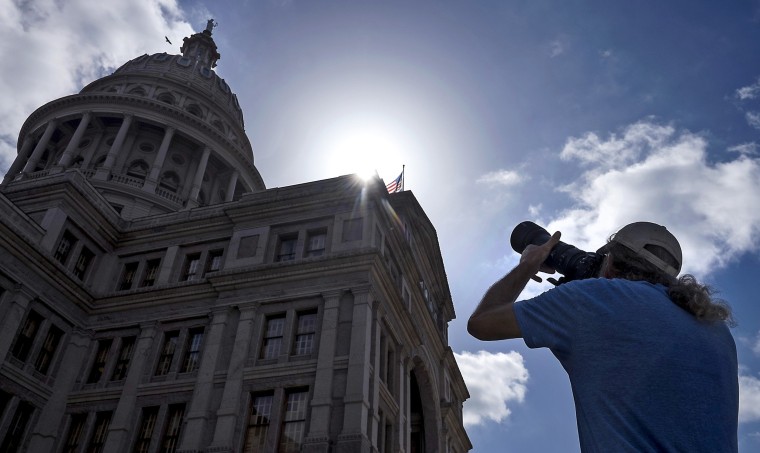The state of Texas, where Latino children make up the majority of the public school population, went before its highest state court Tuesday to defend how it is paying for its school students education which has been challenged by hundreds of its school districts.
The Texas Supreme Court, with a makeup of nine Republican judges, was hearing an appeal by the state of a lower court judge's ruling that the state's school finance system is unconstitutional. District Court Judge John Dietz found that the public education system was not adequately funded and problematic in how it channels money to school districts. Several issues are being considered.
The lawsuit was filed by some 600 of the state's school districts after the state's Legislature slashed $5.4 billion from its education budget. The hearing was livestreamed.
The Mexican American Legal Defense and Education Fund was among those arguing on behalf of the school districts and their Latino schoolchildren. MALDEF's attorney Marisa Bono argued on behalf of Edgewood Independent School District students and five property-poor districts in Texas.
Edgewood, located in San Antonio, is one of the poorest school districts in the state and has been overwhelmingly Latino for decades. It was the school at the center of the landmark 1980s case that prevailed in challenging the state's education funding system - which relied heavily on property taxes – as violating the state's constitution.
"All school districts are facing challenges with the recent budget cuts, but for districts like Edgewood and McAllen, the inequities are patently unfair," Dr. Jose A. Cervantes, superintendent for Edgewood Independent School District said in a statement. "The gap of over $1,000 per child translates to over $22,000 per classroom. This is reprehensible."
One of the questions in the suit is whether the state is adequately providing for English Language Learners - ELL students – and economically disadvantaged students.
"Low income and ELL students can no longer make forward progress," Marisa Bono, MALDEF's attorney who is representing Edgewood, said during the arguments.
The state is arguing that more recent infusions of funding have changed the landscape, that the case does not belong before the courts, rather that the Legislature is responsible for resolving the policy issues. The state says the state only recently began implementing a more rigorous public education system that cannot be yet evaluated.

